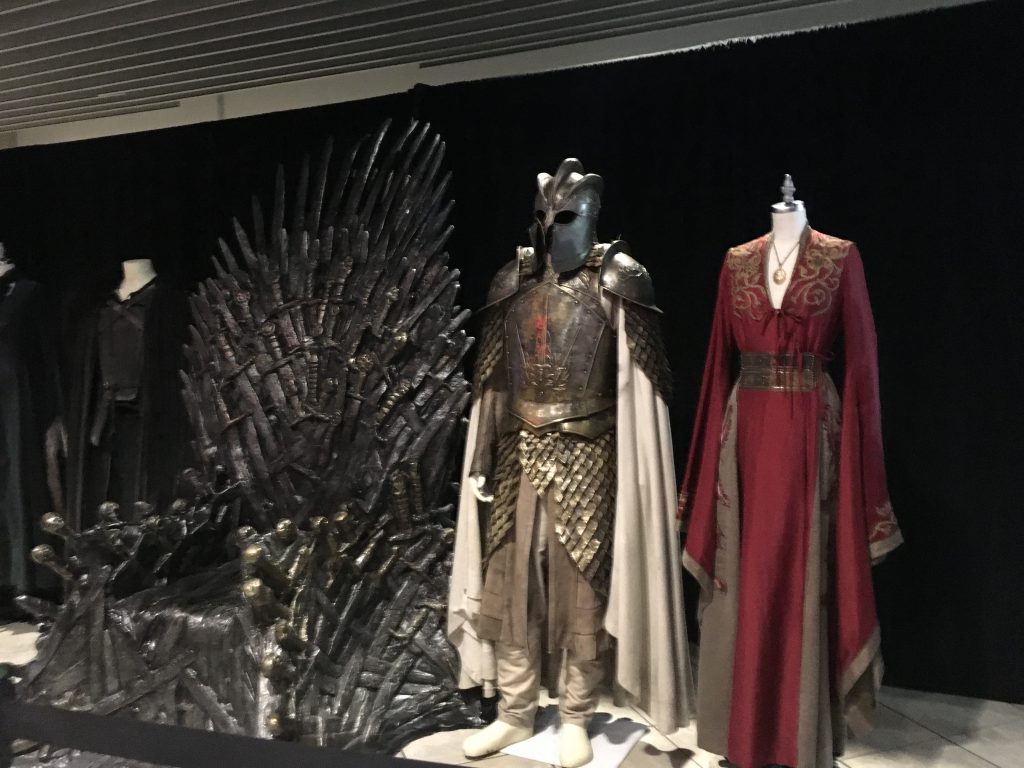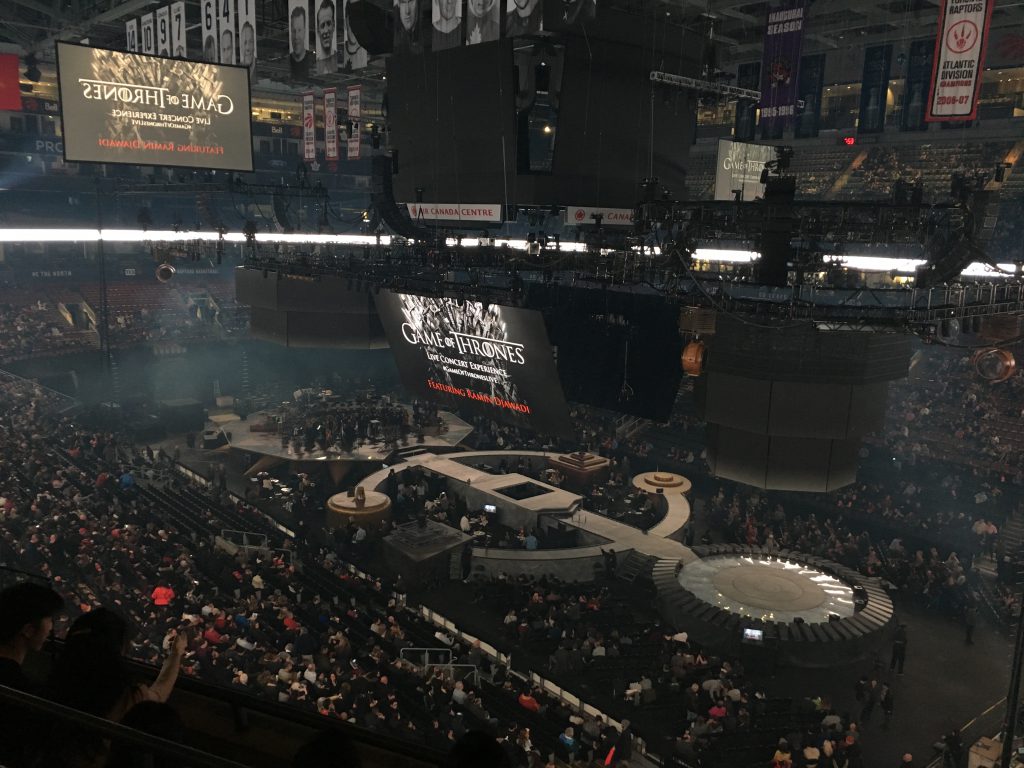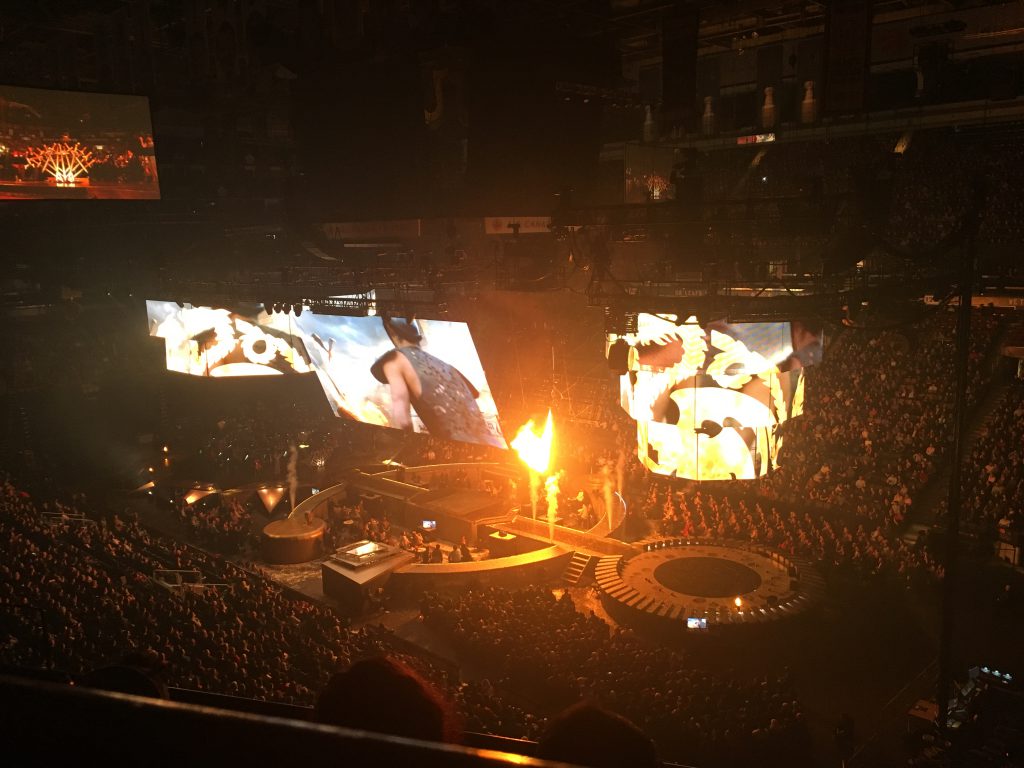Toronto welcomed Westeros to the Air Canada Center March 4 with the anticipated Game of Thrones Live Concert Experience, led by conductor and composer Ramin Djawandi.
The experience itself is dangerous territory for those who are not caught up with Game of Thrones, though it would be enough to make any non-believer want to catch up before the newest season arrives. The concert tour is also arguably the best marketing promotion I’ve seen fo r a television show thus far. It was very clear that HBO did not want to take any shortcuts with this North American tour.
r a television show thus far. It was very clear that HBO did not want to take any shortcuts with this North American tour.
Physically, the arena was more intricately set up than many other popular artists who have graced Toronto’s stages. The stage took up almost the entirety of the floor with areas for people to sit at tables around the center area of the stage. It was no ordinary feat; it featured two circular ends. At one end, the orchestra chairs were set up impressively, and throughout the course of the evening, instrumental leads and soloists would be at different parts of the stage. The screens were placed around the arena in a way such that everybody would be able to view the scenes as well as two sets of screens that were arranged in a chandelier-esque form. These all added up to create the most dramatic and beautiful visuals from time to time.
The beauty of the Game of Thrones Live Concert Experience was the emphasis on the importance of musicality. Game of Thrones has been lauded for its exceptional storytelling, immense budget, and generally presenting itself as a highlight of exceptional television. However, its music — composed by Djawadi — serves as a powerful indicator of the emotions that flow between scenes. The relationships between television, movies, and their soundtracks are often marked by how recognizable and powerful pieces are when they are taken out of the context of their scene. The Live Concert Experience did not really give the opportunity to hear these songs isolated from their scenes as the monstrous screens and pillars around the arena highlighted the exact scenes from which the pieces hailed. It was objectively obvious exactly how the show has benefitted from such a powerful, adept score.
The pieces spanned from season one to the latest season six, encompassing a wide breadth of character themes and important scenes to the show. The audience cheered and jeered appropriately (for the most part), while excitement consistently thrummed around the arena like a constant reminder of the underlying power of these pieces. It was very easy to see how much the musical score contributed to the show. Through character and story arc montages, the music truly became its own entity, encompassing the stories of the characters, and how much they have grown (or not) over the seasons. The homages to the earlier seasons were especially moving and heart-wrenching.
An exceptional moment came in the second act of the concert. Djawadi took the helm of a piano/organ, and began the opening notes to “Light of the Seven”. Similarly to when “The Rains of Castamere” began, the arena collectively gasped and a palpable tension arose — the best kind, of course. Djawadi and his orchestral arrangement masterfully entranced the audience throughout the lengthy piece, with one of the show’s most iconic moments shimmering across the screens. Artfully, the screens physically moved upwards and down as Djawadi and piano rose on a platform. As the song closed, wildfire exploded across the screen and around Djawadi himself through a fantastic use of green pyrotechnics.
The concert closed on a humourous note as the musicians played off all the characters who had passed throughout the course of the series. It was a hopeful piece, if anything, as dedicated Game of Thrones viewers know now to simply expect more deaths as the show reaches its conclusion. I look forward to the many more death scenes for which Djawadi will compose music.

































